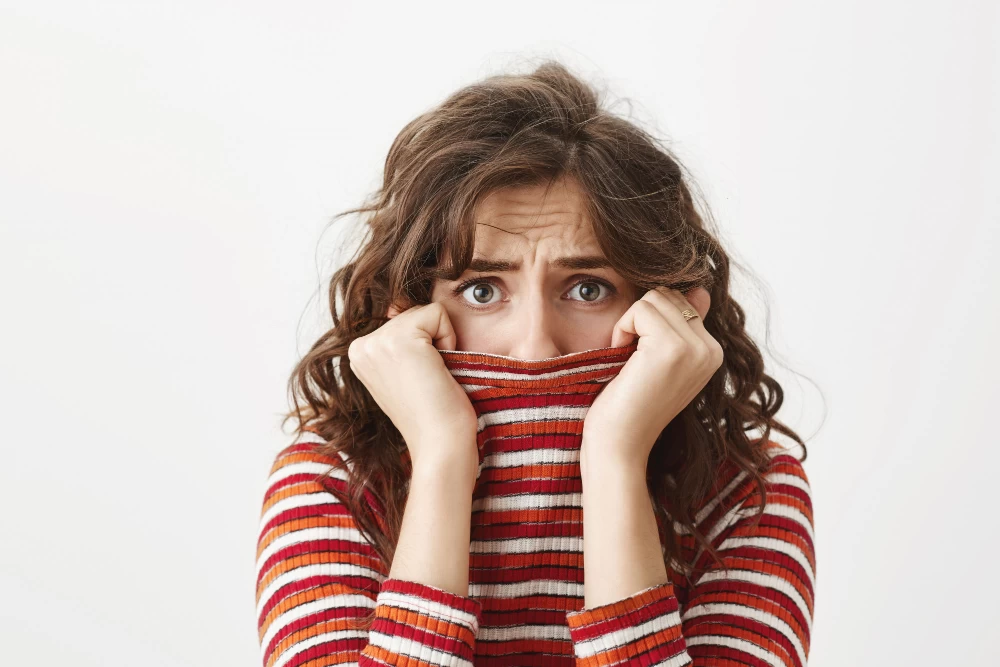
Panic Attack
- Panic Attack
- What Are Panic Attack Symptoms?
- What are Panic Attack Treatment Methods?
- What Should Be Done During a Panic Attack?
- Who Gets Panic Attacks?
- What are the Panic Attack Risk Factors?
- What changes do panic attacks cause in a person's life?
A panic attack is a sudden and intense wave of fear or discomfort that typically peaks in a few minutes and can last up to an hour. Panic attacks can occur unexpectedly or be triggered by certain situations or objects. It is a symptom of panic disorder, which is a type of anxiety disorder. Panic attacks can be very disturbing and affect daily life. Treatment options such as therapy and medication are available to help manage panic attacks and panic disorder.
What Are Panic Attack Symptoms?
Panic attacks are sudden and intense feelings of fear or discomfort, often accompanied by physical symptoms.
Some common symptoms of a panic attack include:
- Racing or beating heart
- Sweating or shaking
- Shortness of breath or difficulty breathing
- A feeling of congestion or tightness in the throat
- Chest pain or discomfort
- Nausea or abdominal pain
- Feeling dizzy or faint
- Numbness or tingling in the hands, feet, or face
- Feeling disconnected from reality or your body (depersonalization or derealization)
- Fear of losing control or going crazy
- afraid to die
- shaking
It's important to note that not everyone experiences all of these symptoms during a panic attack, and some people may experience additional symptoms not listed here. If you're experiencing panic attack symptoms, it's important to seek help from a mental health professional.
What are Panic Attack Treatment Methods?
Various treatment methods are available for panic attacks:
- Cognitive-behavioral therapy (CBT): This is a type of therapy that focuses on changing the way a person thinks and behaves in response to panic attacks. CBT can help individuals identify and combat negative thoughts and beliefs that contribute to panic attacks and teach coping skills to manage symptoms.
- Medications: Antidepressants and anti-anxiety medications may be prescribed to help manage the physical symptoms of panic attacks. However, drug therapy alone is not typically considered a long-term solution for panic attacks.
- Relaxation techniques: Deep breathing exercises, progressive muscle relaxation, and other relaxation techniques can help reduce panic attack symptoms by slowing the body's physical response to stress.
- Mindfulness-based therapies: Mindfulness-based therapies, such as mindfulness meditation or mindfulness-based stress reduction, can reduce the likelihood of panic attacks by helping individuals learn to stay in the moment and focus.
- Lifestyle changes: Making lifestyle changes, such as reducing caffeine intake, avoiding alcohol and drugs, exercising regularly, and practicing good sleep hygiene, can also help reduce the frequency and severity of panic attacks.
There is no one-size-fits-all treatment for panic attacks, and what works for one person may not work for another. It is best to work with a mental health professional to determine the best treatment plan for your individual needs.
What Should Be Done During a Panic Attack?
Panic attacks can be very distressing, but there are things you can do to deal with them:
- Recognize that this is a panic attack: One of the most important things you can do during a panic attack is to realize that what you are experiencing is a panic attack, not a medical emergency. Remember that panic attacks are a natural response to stress and anxiety and are not dangerous.
- Breathe slowly and deeply: Take slow, deep breaths to help regulate your breathing. Try to breathe in through your nose and out through your mouth. Count to five as you breathe in. This will help slow your breathing and calm your body.
- Use calming self-talk: Speak to yourself in a calming and reassuring way. Remind yourself that the panic attack will pass and you will get better. Repeat a calming phrase such as "I'm safe" or "This will pass."
- Practice grounding techniques: Focus your attention on your surroundings to help you ground the moment. Name five things you can see, four things you can touch, three things you can hear, two things you can smell, and something you can taste.
- Seek support: Reach out to someone you trust, such as a friend or family member, and let them know you're having a panic attack. They can offer you support and help you feel less alone.
Remember that it's important to take care of yourself after a panic attack. Do self-care activities such as taking a warm bath, going for a walk, or listening to calming music. If you continue to experience panic attacks, consider seeking professional help from a therapist or counselor.

Who Gets Panic Attacks?
Panic attacks can happen to anyone, regardless of age, gender, or background.
However, some people may be more susceptible to having panic attacks due to a variety of factors, such as:
- Genetics: People with a family history of anxiety disorders may be more likely to have panic attacks.
- Psychological factors: Individuals with high levels of stress, anxiety or depression are more likely to have panic attacks.
- Medical conditions: Certain medical conditions, such as thyroid problems, heart disease, and respiratory disorders can increase the likelihood of having a panic attack.
- Substance abuse: Drug or alcohol use can increase the risk of panic attacks.
- Trauma: People who have experienced traumatic events such as abuse, violence or natural disasters may be more susceptible to panic attacks.
It is important to remember that experiencing panic attacks does not necessarily mean that a person has an anxiety disorder, but it is crucial to seek help if panic attacks are disrupting daily life. A mental health professional can provide appropriate diagnosis and treatment options.
What are the Panic Attack Risk Factors?
Panic attacks can affect anyone, regardless of age, gender, or lifestyle. However, certain risk factors can increase the likelihood of having a panic attack.
These risk factors include:
- Genetics: Panic disorder can run in families, suggesting a genetic component to the disorder.
- Brain chemistry: Some neurotransmitters in the brain, such as serotonin and norepinephrine, may play a role in panic disorder.
- Stressful life events: Major life changes such as divorce, death of a loved one or moving to a new place can trigger panic attacks.
- Phobias: Having a specific phobia, such as a fear of flying or heights, can increase the risk of panic attacks.
- Medical conditions: Certain medical conditions, such as hyperthyroidism or heart disease, can trigger panic attacks.
- Substance abuse: Drug and alcohol abuse can increase the likelihood of having a panic attack.
- Trauma: Exposure to traumatic events such as physical or sexual abuse may increase the risk of panic attacks.
It is important to note that not everyone with these risk factors will experience a panic attack, and having one or more of these risk factors does not necessarily mean that you will develop panic disorder. However, if you are experiencing panic attacks, it is important to seek professional help to identify the underlying cause and develop an effective treatment plan.
What changes do panic attacks cause in a person's life?
Panic attacks can significantly affect a person's life and well-being.
Here are some common changes that can occur:
- Avoidance behavior: After a panic attack, the person may begin to avoid situations or places that they fear may trigger another attack. This can lead to social isolation and difficulty participating in daily activities.
- Anxiety and fear: Panic attacks can cause intense feelings of anxiety and fear that can persist even after the attack has passed. This can cause a constant feeling of restlessness and anxiety, which can negatively affect the person's quality of life.
- Physical symptoms: Panic attacks can cause a range of physical symptoms such as heart palpitations, sweating, dizziness and shortness of breath. These symptoms can be bothersome and lead to more anxiety.
- Depression: Chronic panic attacks can lead to depression as a person may feel hopeless and overwhelmed by their symptoms.
- Sleep disorders: Panic attacks can interfere with sleep, causing insomnia or disruption of sleep patterns. This can lead to fatigue and further exacerbation of feelings of anxiety.
- Work and relationship difficulties: Panic attacks can affect a person's ability to work or maintain healthy relationships, and this can have significant social and financial consequences.
If you are experiencing panic attacks, it is important to seek professional help as there are effective treatments to manage symptoms and improve your quality of life.


